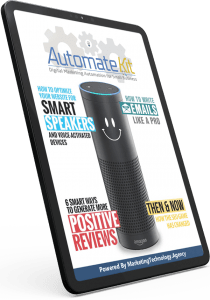Guess what?
If your business is local and you haven’t focused on local SEO, then the chances are good that you’re falling behind your competitors without realizing it.
All SEO is not created equal. National SEO – which focuses non-location based keywords – is useful for big corporations. But for small businesses, local SEO is where it’s at.
What are the differences? What do you need to know to make the most of local SEO? Let’s talk about it.
The Big Picture Similarities
Local and national SEO have a lot in common.
For example, both types of SEO have the goal of improving a website’s ranking on Google’s Search Engine Results Page (SERP.) The pages with the highest ranks get the lion’s share of traffic, which means they also get more conversions and more sales.
Some general techniques apply to all SEO, regardless of the target audience. I’m talking about:
- Optimizing content with keywords
- Using keywords in tags, titles, and meta descriptions
- Link building with authority sites
- Guest blogging
These things are essential because they help Google and other search engines “crawl” your site and index it properly.
National Keywords vs. Local Keywords
The biggest difference between local and national SEO is the keywords you’ll use. National businesses can use general keywords because they’re big enough to benefit from doing so. When customers buy online or can find your business at their local mall, you don’t need to worry too much about locational keywords.
Local businesses do need to worry about locational keywords. They help local customers – the ones most likely to frequent your business – find you online.
Depending on your business, you may choose to use words that incorporate the name of your state, city, or neighborhood. Let’s look at a hypothetical business to see how this strategy might play out.
The business is a bakery located in the North End neighborhood in Boston. Here are a few local keywords that might be useful:
- North End Italian bakery
- Italian bakery North End Boston
- Boston bakery
- Massachusetts bakery
You get the idea. You can come up with variations that use the locations that are most likely to help your customers find you.
Choosing the right local keywords also helps you with Google. When someone in the area searches “best North end bakery,” Google will return results based on the GPS on the searcher’s phone or device.
In other words, local keywords help Google include your business in local searches, making it more likely that people in your area will learn about your business.
The Benefits of Local SEO
Local SEO offers some significant benefits to small and medium-sized companies. A small company is unlikely to be able to compete with a large national brand. They won’t have the budget or the reach to do so.
Here are some of the key benefits of local SEO as I see them:
- Local SEO is more targeted than national SEO and thus more likely to help you reach the people who are the most likely to become regular customers.
- Local SEO is almost always less expensive than national SEO because there’s less competition for local keywords and you’ll be targeting a smaller audience than you would if you were using a national keyword.
- In many ways, local SEO is easier to conceptualize, implement, and manage than national SEO. You won’t need a large marketing team to make a big impact in your local market.
For most small and medium-sized businesses, local SEO just makes sense. Why would you throw money away chasing general or national keywords when you can get better results by spending less money?
Tips to Perfect Your Local SEO
What’s the best way to perfect your local SEO? Fortunately, it’s not that hard to do. Here’s what I suggest:
- Start by claiming your business listings. Anywhere your business is listed online, whether it’s on the website for your local Chamber of Commerce, Yelp, or a city directory, should be something you control. Claiming your listings makes it easy for you to correct errors and ensure that it’s easy for people to find your business.
- Next, you’ll need to standardize your NAP (name, address, phone number) listings. To get the best results with Google and other search engines, you’ll need to make sure that all NAP listings are identical. That means everything, from the abbreviations you use for your street address to the phone number you list, must be the same.
- Considering adding location pages to your website if you have more than one location. It’s easier to get local SEO right when you’re specific – and when you make it simple for people in your area to find you.
- Update Google My Business for your business. Because it’s owned by Google, this is the one listing you can’t afford to ignore. Make sure you’ve got a link to your URL and that you use local keywords in your descriptions.
- Research the local keywords with the most traffic and use them in your content. Remember that people in search of local businesses are highly likely to use local keywords. Choose your keywords accordingly.
- Create compelling and useful local content that will attract people to your site. Make sure to use your keywords in your tags and link out to authority sites. You should also include a system of internal links.
- Encourage your customers to write reviews – and respond to all reviews, positive and negative.
- Do some local link building by reaching out to other businesses and directories in your area and getting them to link back to your site.
- Use local keywords on your social media sites. Add maps, use Facebook’s mobile options to allow mobile users to click to call you, and allow customers to leave reviews.
Local SEO isn’t difficult, but you’ll need to be methodical and practical in how you approach it.
Conclusion
If you want to attract local customers, you need local SEO. It’s as simple as that. Your mission, should you choose to accept it, is to focus on identifying the local keywords and strategies that will have local customers flocking to your door.












